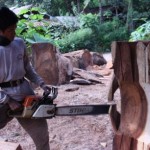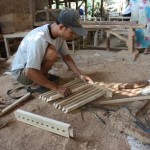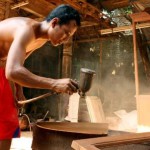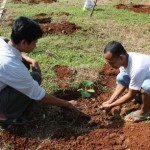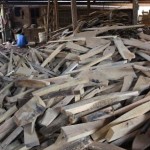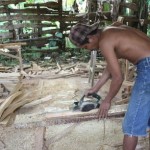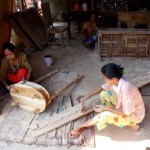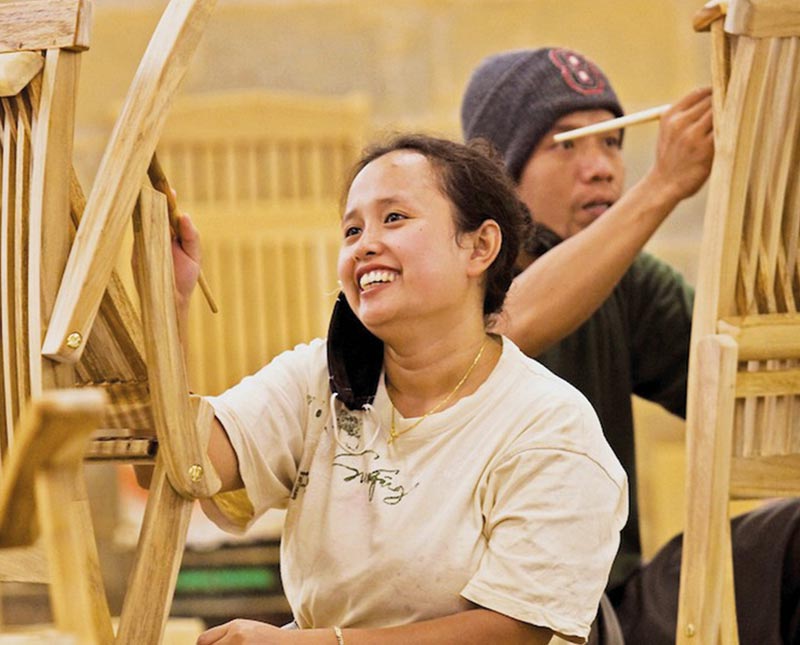
Outcomes & Impacts
Action Research in Indonesia

A roadmap for strengthening the wooden furniture industry in Jepara, Central Java, is making its way into law, thanks to participatory action research by CIFOR and its partners.
Furniture making is central to the culture and economy of Jepara, a district in Central Java, Indonesia. Yet it can be hard for small-scale furniture producers to make a living: high-quality teak and mahogany are in short supply; producers have weak bargaining power and little business knowledge; and cash just doesn’t seem to flow. This mix of problems may take these furniture artisans deeper into poverty.
CIFOR and its partners set out to tackle these problems through the Furniture Value Chain Project, supported by the Australian Centre for International Agricultural Research. To be sure they made a difference, the project team joined forces with the Jepara Furniture Multi-stakeholder Forum, Jepara local government agencies, the Forestry Research and Development Agency of the Ministry of Forestry, and Bogor Agricultural University.
By the time the project wrapped up in June 2013, its impacts were already being felt.
“Changing people’s behaviour is much easier if they are involved in designing the project and conducting the action research.”
Herry Purnomo, CIFOR Scientist, appointed Professor of Forest Management and Governance at Bogor Agricultural University in 2013
Furniture Value Chain Project
Duration
2008–2013
Funding partner
Australian Centre for International Agricultural Research (ACIAR)
Value chain research across Southeast Asia
With such positive outcomes for Jepara, CIFOR is ready to scale up the action research — to other parts of Indonesia, to other value chains and to other ASEAN countries, with scoping visits planned for 2014.


Main outcomes
Policy outcomes
“Roadmap for Jepara’s Furniture Industry 2013–2023”
A strategic action plan, formulated as part of the action research, is being passed into local law by the Jepara District Parliament.
Social outcomes
Jepara Small-Scale Furniture Producers Association (APKJ) formed.
APKJ members benefited from networking, meeting customers and policymakers.
Economic outcomes


Environmental outcomes
10
10–15%
1000
Capacity building
- APKJ members trained in financial management and marketing
- Women in the industry received training, including improved occupational health and safety
- Indonesian students trained in research methods
- Research projects conducted by:3 PhDs, 9 MScs & 4 undergraduate students
“Challenges and barriers certainly exist, but they are no reason to give up. Just keep your spirits up and continue to think and seek solutions.”
Furniture maker Abdul Latif, who obtained timber legality certification with support from CIFOR
